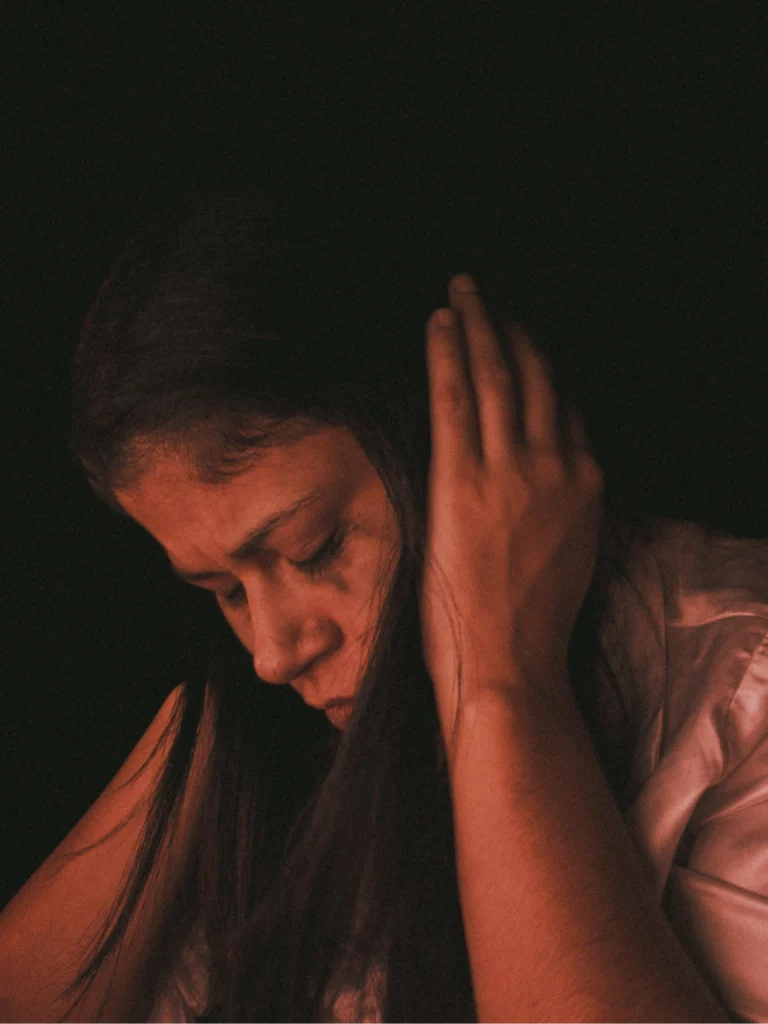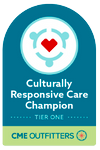What is Anxiety Disorder?
Anxiety disorder is a complicated mental health condition that greatly affects day-to-day functioning and even can be disabling for individuals dealing with this mental issue. It is frequently characterized by constant worry and fear. It can take on various types that impact ideas, feelings, and behaviors.
What Are the Causes of Anxiety Disorder?
Genetics
A family history of anxiety disorders can increase the chance of developing one.
Environmental Stressors
Anxiety may be brought on by traumatic experiences, ongoing stress, or major life changes.
Medical Factors
Symptoms of anxiety may be caused by existing medical diseases, such as heart disease or thyroid problems.
Substance Abuse
Substances like drugs, alcohol, and some prescriptions may increase anxiety symptoms or even cause anxiety disorders.
Brain Chemistry
Neurotransmitter imbalances, including those in dopamine and serotonin, can lead to anxiety disorders.
Personality Traits
Perfectionism, neuroticism, or a strong tendency to worry are examples of personality qualities that may raise one’s chance of developing anxiety disorder.
What Are the Different Types of Anxiety and Symptoms?
There are numerous varieties of anxiety, and each one has a distinct impact on individuals, from having excessive worries about everything to having social anxiety. To help you understand anxiety disorders better, we are going to look at their various kinds.
Generalized Anxiety Disorder
Generalized anxiety disorder is one of the various types of anxiety defined by excessive and constant worrying over everyday situations and problems. Worry can interfere with daily activities and life for those with Generalized Anxiety Disorder (GAD). It can cause physical symptoms like tiredness, tense muscles, irritability, and trouble falling asleep. While some people may be able to manage their anxiety and still function well, others may find it severely disabling.
Social Anxiety
Another type of anxiety is social anxiety, also known as social phobia. It is characterized by an intense fear of social situations and interactions. People with social anxiety may worry excessively about being judged, embarrassed, or humiliated in social gatherings, leading them to avoid such situations or endure them with extreme discomfort. Symptoms can include sweating, trembling, rapid heartbeat, nausea, blushing, difficulty speaking, and a fear of being the center of attention. These symptoms can significantly interfere with everyday life, relationships, and work or school performance, causing distress and impairing overall quality of life.

Panic Attack Disorder
This disorder is characterized by recurrent and unexpected panic attacks. These sudden episodes of intense fear or discomfort reach a peak within minutes and can be accompanied by physical symptoms such as palpitations, sweating, trembling, breathing difficulties, chest pain or discomfort, nausea, dizziness, and a feeling of being detached from reality. People with these anxiety attacks often live in fear of experiencing another attack and may avoid certain places or situations as a result. These panic attacks can significantly disrupt daily life and lead to feelings of distress and helplessness.

Agoraphobia
Individuals with this type of anxiety disorder often experience a fear of situations where escape or assistance may be challenging, leading them to avoid public spaces altogether.
Selective Mutism
This type of anxiety condition, which is frequently observed in children, is characterized by the inability to speak in specific social circumstances despite speaking in others.
Post-Traumatic Stress Disorder (PTSD)
PTSD can be considered as a type of anxiety disorder that has symptoms such as hypervigilance, nightmares, and flashbacks following exposure to a traumatic experience.
Separation Anxiety Disorder
This type usually involves extreme worry or fear of being separated from attachment figures; this can last throughout adulthood and appears frequently in children.
Obsessive-Compulsive Disorder (OCD)
OCD, another type of anxiety disorder, includes the experience of persistent, distressing thoughts (obsessions) accompanied by repetitive behaviors (compulsions) performed to find relief.
Should I Seek Professional Help to Treat Anxiety?
When anxiety symptoms significantly disrupt daily tasks and diminish quality of life, seeking professional help becomes imperative. Anxiety can impair an individual’s ability to carry out routine activities, maintain relationships, and pursue personal goals. By seeking professional assistance, individuals can access tailored interventions, such as therapy and medication, to effectively manage their symptoms and regain control over their lives.
What Are the Affective Anxiety Treatment Options?
Fortunately, there is a wide range of treatment options for anxiety that individuals can utilize based on their unique needs. Here, we are going to explore them together:
Cognitive-Behavioral Therapy (CBT)
CBT is a widely used therapeutic approach that focuses on identifying and changing negative thought patterns and behaviors associated with anxiety. It helps individuals develop coping strategies to manage their symptoms effectively.
Mindfulness-Based Therapy
This therapy emphasizes present-moment awareness and acceptance of one’s thoughts, feelings, and bodily sensations. It teaches individuals to observe their experiences without judgment, reducing anxiety and promoting emotional well-being.
Traditional Talk Therapy
Talk therapy involves discussions with a therapist to explore and address underlying issues contributing to anxiety. It provides a supportive environment for individuals to express their feelings and gain insight into their concerns.

Acceptance and Commitment Therapy (ACT)
ACT combines mindfulness techniques with strategies to promote acceptance of difficult thoughts and feelings. It helps individuals clarify their values and take action aligned with their goals, despite anxiety-related challenges.
Exposure Therapy
Exposure therapy helps people face their fears by gradually introducing them to situations or things they find scary. By practicing being around these fears in a safe and controlled way, individuals can learn to manage their anxiety and feel more comfortable over time.
Medications
Selective serotonin reuptake inhibitors (SSRIs), like(sertraline), serotonin-norepinephrine reuptake inhibitors (SNRIs), like (venlafaxine), and benzodiazepines, including (alprazolam), are commonly prescribed medications for alleviating anxiety symptoms. These medications work by altering neurotransmitter levels in the brain, with SSRIs increasing serotonin, SNRIs raising both serotonin and norepinephrine, and benzodiazepines enhancing the effects of GABA, resulting in reduced anxiety. It’s essential to note that these medications should only be used under the supervision of a professional psychiatrist.
Lifestyle Changes
Lifestyle modifications, including regular exercise, healthy eating habits, adequate sleep, and stress management techniques, can help reduce anxiety symptoms and improve overall well-being.

Ketamine Therapy
Ketamine therapy involves the administration of ketamine, a medication that has shown promise in rapidly alleviating symptoms of depression and anxiety. It works by influencing mood-regulating neurotransmitters in the brain.
Transcranial Magnetic Stimulation (TMS) Therapy
TMS therapy is a non-invasive procedure that uses magnetic fields to stimulate nerve cells in the brain. It is often used to treat anxiety that has not responded to other treatments.
Biofeedback
Biofeedback teaches individuals to control physiological responses, such as heart rate and muscle tension, through monitoring and feedback. It helps individuals learn to regulate their body’s stress response and reduce anxiety.
Learning Stress Management Techniques
Stress management techniques, such as deep breathing exercises, progressive muscle relaxation, and visualization, can help individuals reduce anxiety levels and improve their ability to cope with stressors.
(833) 646-0763
Rediscover Peace With Bespoke Anxiety Treatment
Looking for an anxiety treatment center in Los Angeles, Las Vegas, or Santa Monica? Bespoke Treatment is the right place for you. Contact our mental health professionals and let your mind find peace once again.
Get StartedBespoke Treatment Offers Anxiety Treatment Options Based on Your Needs
At Bespoke Treatment, we fully understand the distinct needs of each individual and tailor professional care to suit them best. If traditional treatments haven’t been effective and you’re located in Los Angeles, Santa Monica, or Las Vegas, our team of expert psychiatrists is prepared to provide exclusive anxiety treatment for you, including online anxiety treatment options for remote accessibility and convenience. We will guide you through a bright and anxiety-free future, all you need to do is schedule an appointment with our professional psychiatrists.
















